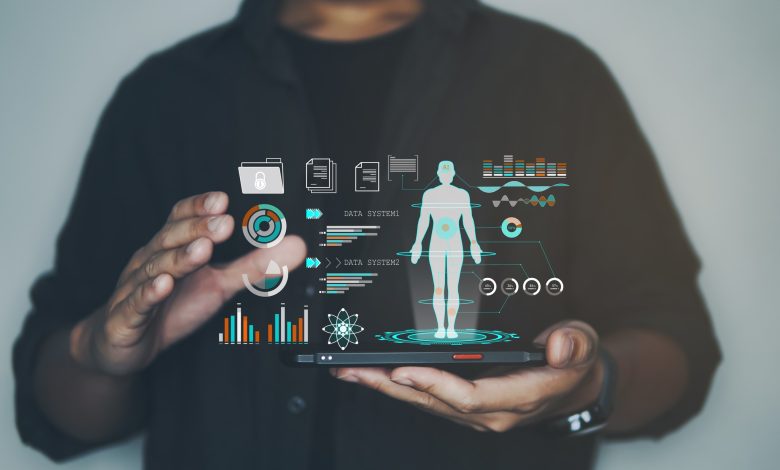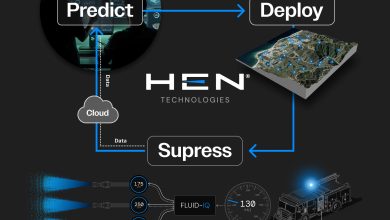
Healthcare is changing faster than most people realize. Advances in artificial intelligence (AI), biotechnology, and digital wellness are converging in ways that could fundamentally redefine what it means to be healthy.
I still remember my grandmother’s words from decades ago: “I don’t just want to live longer—I want to live better.” The best doctors and modern medicine surrounded her, yet she felt that her care often treated her as a set of symptoms rather than as a person. That insight has guided my career: technology should serve human experience, not replace it.
Today, AI offers unprecedented opportunities to anticipate challenges, personalize interventions, and support the body’s natural regenerative processes. But harnessing these tools responsibly requires foresight, strategy, and a commitment to human-centered innovation.
The Power of AI in Human Biology
Human biology is staggeringly complex. Cells communicate through biochemical signals, genes interact in networks, and microbiomes influence everything from immunity to mood. Understanding these systems has always been difficult, but AI allows us to model these interactions at scale, revealing patterns that would otherwise remain invisible.
Predictive modeling is transforming healthcare from reactive to proactive. Instead of waiting for illness to appear, AI enables us to anticipate how interventions, whether treatments, lifestyle adjustments, or nutrition, will impact an individual. This represents a philosophical shift as much as a technical one: healthcare that prioritizes resilience, vitality, and quality of life.
For example, AI-driven algorithms can analyze genomic data alongside lifestyle metrics to suggest personalized interventions that improve cellular repair, optimize metabolism, or even reduce inflammation before symptoms arise. This approach moves medicine from “treating disease” to “enhancing life.”
Transformative Trends to Watch
Two areas are particularly transformative. AI-driven biological simulation enables precise modeling of cellular and metabolic responses, guiding interventions tailored to individual biology. From predicting skin responses to anticipating systemic changes from diet, these models allow unprecedented precision in care.
Synthetic regenerative therapies leverage exosomes and cellular messaging to mimic the body’s natural repair mechanisms. Immune-tolerant synthetic exosomes can support tissue regeneration without triggering rejection. Scalable, safe, and effective, these therapies democratize access to regenerative solutions once limited to experimental settings.
The convergence of these trends presents a profound opportunity: to shift healthcare from managing symptoms to optimizing human potential, redefining wellness as a continuous, proactive journey.
Leading with Responsibility
Innovation is exhilarating, but it carries responsibility. AI and biotech can deliver transformative benefits only if guided by ethics, human insight, and rigorous oversight. Speed must never outpace trust.
We must consider critical questions: Who benefits from these innovations? Are they accessible? Do they enhance lives in meaningful ways? Thoughtful leaders will ensure that breakthroughs serve society broadly rather than a privileged few.
For example, a lab may develop cutting-edge therapy, but without an equitable distribution strategy, its impact is limited. Ethical frameworks must guide every stage of innovation, from research and development to commercialization and clinical use.
The Human-Centered Future
The real value of AI and biotechnology emerges when advanced science meets human experience. Technology should feel intuitive, integrate seamlessly into daily life, and augment natural processes rather than dictate them.
Personalization is central. AI-guided interventions and synthetic regenerative therapies are most effective when combined with empathy, understanding, and respect for individuality. Precision regeneration doesn’t only pertain to tailoring treatments; it’s about anticipating biological change and designing experiences that align with people’s lives, goals, and values.
The future of wellness is not just intelligent—it is humane. It requires balancing innovation with empathy, data with insight, and speed with responsibility.
Strategic Actions for Leaders
Leaders in AI and biotechnology must recognize that the impact of advanced tools depends on the people guiding them. Investing in teams that can interpret complex data, make evidence-based decisions, and anticipate ethical implications is critical. Technical skill alone is insufficient; true intelligence combines expertise with judgment, insight, and foresight, transforming raw information into meaningful, responsible outcomes.
Collaboration across disciplines is essential for groundbreaking innovation. Bringing together molecular biologists, AI specialists, clinicians, designers, and wellness experts fosters environments where diverse perspectives intersect, sparking creativity and experimentation. This cross-pollination ensures solutions are not only scientifically rigorous but also practical, human-centered, and scalable, bridging the gap between discovery and real-world application.
Equally important is a human-centered approach to technology and ethics. Products, platforms, and therapies must be intuitive, accessible, and aligned with the needs of the people they serve.
At the same time, responsibility should be embedded from the outset, with transparency, safety, and societal benefit guiding every decision. By combining strategic vision with agile execution, leaders can ensure innovations are both transformative and principled, advancing human health sustainably while maintaining trust and equity.
Conclusion
We are entering an era where AI and biology converge to redefine health and human potential. The choices we make today, such as how we design, deploy, and govern these innovations, will determine whether technology merely extends life or elevates it. We can ensure that science doesn’t just advance—it serves, uplifts, and empowers by centering human experience, committing to ethics, and integrating intelligence with empathy.


